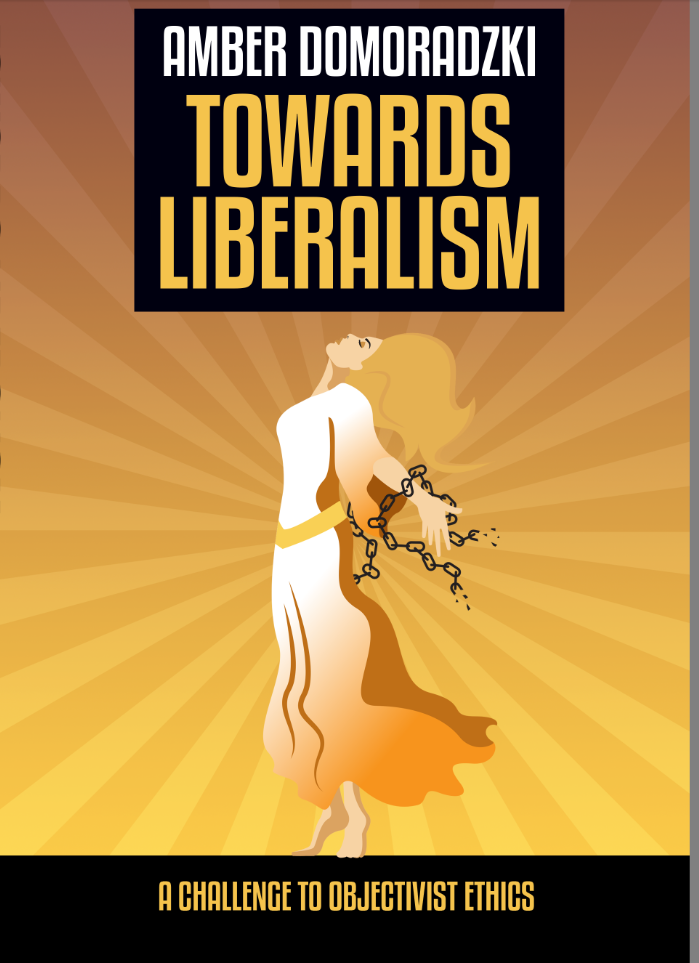This is the first chapter book Towards Liberalism: A Challenge to Objectivist Ethics. Rand has a very controlling and dominating view of the mind. It’s based on her faulty view on human nature.
Rat Park: A Summary of the Challenge
My challenge to Objectivism focuses mainly on the role of the mind. Using the psychological experiment of “Rat Park” is, so far, the best way I’ve found to explain it.
Previous to the study using “Rat Park,” studies done on laboratory rats were conducted in which rats were given the choice of water or water that was laced with some kind of drug such as cocaine. These studies, using caged rats, showed that the rats would pick the cocaine-laced water over plain water to the point of dehydration and death.
But when one psychologist, Dr. Bruce Alexander, attempted this same experiment in the 1970s but put the rats in “Rat Park,” the results were different. Instead of being caged, the rats were allowed to roam, play, socialize, and have sex. These rats, on average and over time, tended to choose the plain water (Sederer). They didn’t need the cocaine.
This could not explain my challenge to Objectivism better. If properly cared for, humans can be trusted: they pick water. If denied love, comfort, and relationships, indeed their inner “whims” become unreliable: they pick cocaine.
That the inner world is unreliable and needs a disciplining ethics is what Objectivism is based on. “Rat Park” but for humans, an abundant, happy world, in which inner and outer world are in conscious, present, joyful harmony, is what I am fighting for.
Psychologists and even philosophers, for decades, have cited the original rat experiments as a reason for the rational mind to dominate the “lower” parts of the brain: the mammalian (responsible for emotions) and lizard (responsible for fight/flight) brains. Rand similarly starts her Objectivist ethics by declaring the inner world is chaotic and in need of discipline. Rand bases her system on the assumption that humans are born “tabula rasa.” The best way I have been able to describe tabula rasa, as it relates to emotions, is that a person’s emotional mechanism is like a wild horse in need of taming. Rand describes that you’ll have some emotions, but what you feel is based on your values. She has elaborate thoughts on how to discipline emotions, including happiness, to do what we tell them to, describing them as otherwise potentially out of control and destructive.
My argument is this is unnecessary and even counterproductive. My argument is that these parts of the mind, the inner world, do not need dominated. If traumatized, people sometimes need a strong thought paradigm to program and restrain their inner world, such as the caged rats would. But if properly cared for, which is a gentle and loving pursuit, those “inner whims” can be trusted. This inner world is in fact a guiding light, especially when parenting and educating children: it’s the exact place where we can thrive as humans. We need to move away from highly “rational” rugged individualism and towards proper caregiving of each other, on a personal level. And don’t confuse my argument as one for socialism or altruism.
When Dr. Alexander did this study in the late 1970s, it was rejected by major scientific magazines. This just kills me. This shows just how entrenched views of “strict discipline of the inner world leads to success” were in the past and still are. I am writing strongly against this otherwise seemingly intoxicating view that we need to take the reins over our personal inner world to achieve success (i.e., the need for control). I write this book, targeting people’s ethics, entirely to shake up these stale moral paradigms that block such scientific progress.
The mind’s role over the inner world is what the challenge is. I advocate a mind that is conscious: one that patiently governs the inner world. I pit this against a mind that is “rational”: one that dominates the inner world, as the entire moral framework of Objectivism is based on. My argument is that Rand’s all-encompassing “rational morality”—the very thing she spent much of her life developing— is unnecessary and even counterproductive. There is a motor inside us that we don’t understand, and it isn’t the reasoning brain. It is much more visceral than that. And in not understanding it, we routinely abuse it and each other.
What we need is an ethos of caregiving: to properly care for each other, especially in youth. Proper caregiving erases entirely the need for an all-encompassing rational morality.
And this has enormous implications in health, education, parenting, and more.

Enjoy a better way of living. Read Towards Liberalism: A Challenge to Objectivist Ethics.

